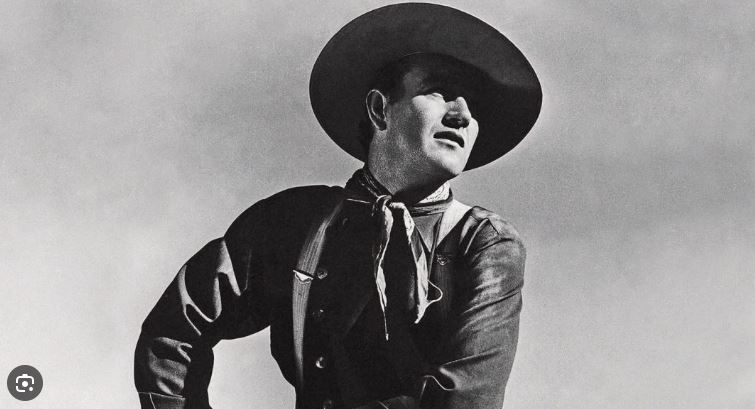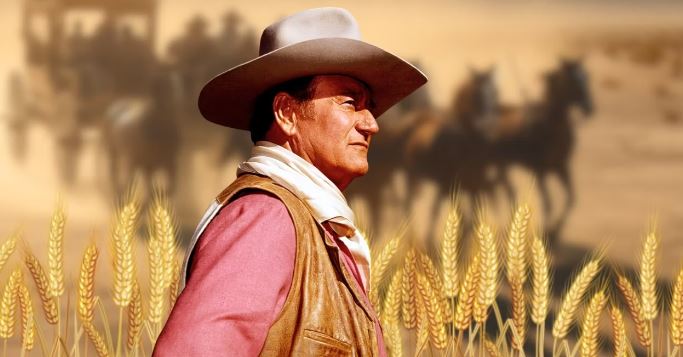In the post-war period, Hollywood became inundated with western movies and television serials. For some reason, the only way the American World War II survivors could conceive of forgetting all the guns and violence was with cowboy movies brimming with guns and violence set a little closer to home. Early on, John Wayne was undoubtedly the biggest hero on the prairie, with appearances in classics like The Searchers and Rio Bravo.
Wayne’s acting talent is often criticised from a modern perspective, but in his time, he became prominent and prolific thanks to his memorable stage presence. Before he broke into acting, Wayne worked as a props technician at Fox, where he made some crucial connections. After winning over Raoul Walsh with his youthful charm and natural charisma, Wayne landed his first-ever role in the 1930 pre-Code western The Big Trail.

Subsequently, Wayne endeared the legendary filmmaker John Ford, who had a vision of making the actor the all-American hero, a masculine role model for the World War II period. However, before popular masterworks like Stagecoach and The Long Voyage Home, Wayne took a little while to find his voice as an actor. After all, he was a prop man with no formal training on stage or screen.
By the 1940s, Wayne had become a national star and had begun to popularise the western genre as one of the most popular on American screens. His performances may not have rivalled those by Marlon Brando or Humphrey Bogart, but audiences grew to love him for his familiarity engendered by his slow drawl when delivering iconic lines and a walk that became a standard for western movies.
Though the pair later entered a feud, Wayne’s foundational work in western movies through the 1940s and ’50s inspired Clint Eastwood and several other imminent stars, including Jimmy Stewart and Steve McQueen. In turn, Wayne was inspired by a host of acting talent that came before and during his time in the limelight, including Laurence Olivier, Spencer Tracy and Lionel Barrymore.
Above all others, however, Harry Carey was Wayne’s most significant acting influence. Wayne and Carey shared the screen on several occasions between 1941 and ’48, including joint appearances in The Shepherd of the Hills, The Spoilers, Angel and the Badman, and Red River. The most celebrated of these titles, Red River, was released after Carey’s death in September 1947, when he was 69 years old.
Carey’s son, Harry Carey Jr, and wife, Olive Carey, were also actors, and followed him into western movies as friends of Wayne. Carey Jr worked alongside Wayne in several movies, including Rio Bravo and Big Jake, while his wife was part of the cast in The Wings of Eagles and The Alamo. Both mother and son appeared alongside Wayne in The Searchers as Mrs Jorgenson and Brad Jorgenson, respectively.
In Joseph McBride’s book Searching for John Ford, Wayne is quoted in a conversation with Carey Jr. While discussing the immeasurable impact of Carey Sr, Wayne waxed lyrical about his most significant acting influence. “I watched your dad since I was a kid,” he said. “I copied Harry Carey. That’s where I learned to talk like I do, that’s where I learned so many of my mannerisms. Watching your father.”
According to Wayne, Carey “projected a quality that we like to think of in men of the West,” a quality later attributed to Wayne above all others. The book also notes that the classic closing shot of The Searchers, where Ethan Edwards stands silhouetted in the doorway as the music plays out, was a tribute to Carey. In the shot, Wayne holds his elbow in his hand, copying one of his hero’s iconic stances.
